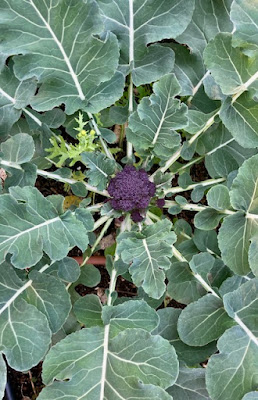Following up on last month’s blog, the corrupt mayor in Tzfat (the one who bankrupted the city) lost to a Hareidi candidate who knows nothing about the city’s issues - he was parachuted in by Shas and his connection to the town is that his wife was born there.
All of the Tzfat Hareidim voted for him because the rabbis told their congregants to do so. When I arrived that evening to vote, the roads and polling stations were littered with election flyers that were thrown around like confetti and the religious kids were blasting music as if this were some kind of party.
“There goes Tzfat,” I thought to myself. I don’t know what kind of job this new unknown mayor will do, but he will favor the wishes of his Hareidi electorate and his Shas boss. Due to a poor population that can’t pay taxes, high unemployment, and nepotism, Tzfat has been thrown into a downward spiral over these last few years. It is so sad because this place could be a gem.
The rain and cold temperatures have not let up so I am holding off on spring planting; good news for the broccoli, cauliflower, and leeks which prefer this wintry climate.
The war continues and is heating up in the north. Life goes on until I hear a huge boom and look around like a disoriented deer, eyes bulging in the headlights, not knowing if I should run for cover or stand still, heart palpitating.
We celebrated the holiday of Purim yesterday and as I read the megillah, I was shocked by the similarities with life today. It is uncanny; the characters have different names but their roles are the same. The only difference is that we know the Purim story ends with victory, even though it looked dire for the Jews. For us today, we do not know how this slow-moving nightmare will unfold.
To practice happiness in my own space during these uncertain times, I opt to work on unity, try to do good deeds, and weed. We heard about a family that was evacuated from a northern border village who were about to be homeless. We have a tiny two-room unit in the back of our property and wanted to help. This place was normally used for cooling vegetables, packaging the harvest, and storing gardening tools with hopes of having a farm helper live there one day.
The unit is more of a glamping place than a home with an outdoor kitchen, shower, and toilet. But it is peaceful and has views of the flourishing market garden from a large wooden porch. The family decided this would be a nice place to call home and so they moved in with their two children.
Even though we live in the same country, our families inhabit different worlds - and because of this, I feel it is really important to share our garden ‘sanctuary.’ When I say sanctuary, I mean it; the garden has been my quiet, private place, my place for meditation and prayer, and my nature therapist throughout the six months of this scary war. By having a family with two kids living there in the garden's center, I am changing the dynamics for myself, but I want to stretch by being open, kinder, and welcoming.
After the disunity, hatred and countless demonstrations that divided this nation prior to October 7, I feel that embracing the other is the path if Israel wants to become a stronger and more united nation.
So here we are: English-speaking, religious and politically right-wing people hosting a Hebrew-speaking, secular and wildly left-wing family. Seriously, someone should come here and make a reality TV show – if I am not entertaining enough, my Silkie rooster could take the leading role.
On one level, the news seems to worsen here and abroad; the newly elected Tzfat mayor takes office and world hates us even more. Our brave soldiers are putting their lives on the line by fighting an enemy who is now shooting at them while hiding in a Gazan hospital maternity ward.
My new neighbor is baking sourdough bread from freshly milled flour in the outdoor kitchen. The smell wafts over to the market garden as I fill my harvesting basket with fresh sweet peas.






























